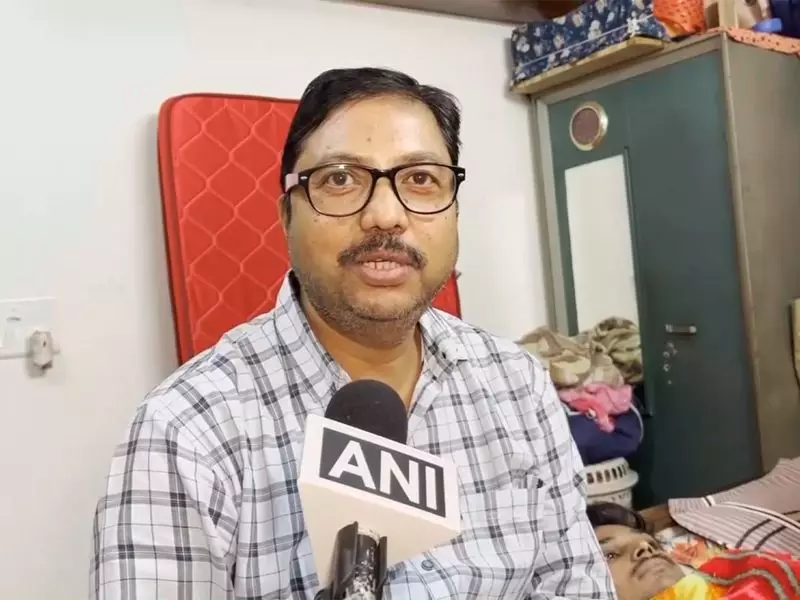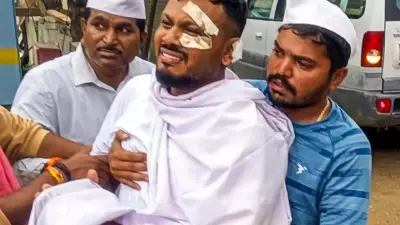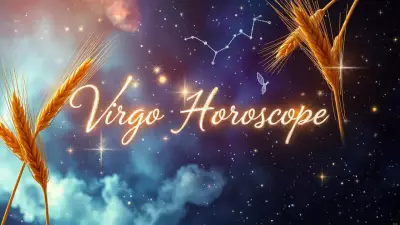
In a heart-wrenching appeal that has captured national attention, a father from Uttar Pradesh has made an extraordinary request to the Russian government - to use his cancer-stricken son as a subject for their pioneering cancer vaccine trials being developed by the creators of the Sputnik V COVID-19 vaccine.
The Desperate Plea from Uttar Pradesh
Vikram Singh, a resident of Bulandshahr district in Uttar Pradesh, has taken the extraordinary step of writing directly to Russian authorities, begging them to consider his 24-year-old son Ansh for their experimental cancer vaccine program. The young man is battling fourth-stage blood cancer, and conventional treatments have shown limited success.
The emotional appeal comes at a crucial time when Russian scientists from the Gamaleya Research Institute, famous for developing the Sputnik V coronavirus vaccine, have announced promising developments in cancer vaccine research. Singh's letter represents the desperation faced by countless Indian families dealing with advanced cancer cases where traditional treatments offer diminishing hope.
Background of the Medical Crisis
Ansh Singh's medical journey began when he was diagnosed with blood cancer, and despite undergoing extensive treatment including chemotherapy, the cancer has progressed to its fourth stage. The family has exhausted their financial resources and explored numerous treatment options across India, but the disease continues to advance.
The situation became particularly dire when doctors indicated that conventional treatments were no longer proving effective. It was at this critical juncture that the family learned about Russia's cancer vaccine development program and decided to make their unprecedented appeal.
Russia's Cancer Vaccine Breakthrough
The Russian cancer vaccine being developed represents a significant advancement in immunotherapy approaches to cancer treatment. Unlike traditional chemotherapy that attacks both healthy and cancerous cells, cancer vaccines work by training the immune system to recognize and destroy cancer cells specifically.
The Gamaleya Institute, which gained global recognition for its COVID-19 vaccine, has been working on cancer vaccines for several years. Their research builds upon the same adenovirus vector technology that proved successful in their coronavirus vaccine, adapted to target cancer cells instead of viruses.
Russian authorities have indicated that human trials for their cancer vaccine are in advanced planning stages, though specific timelines and participant selection criteria haven't been publicly detailed. This uncertainty has created both hope and anxiety for families like the Singhs who see this as a potential lifeline.
The Family's Emotional Struggle
Vikram Singh's appeal isn't just a formal request - it's the culmination of a family's exhausting battle against a relentless disease. The financial and emotional toll has been immense, with the family selling assets and borrowing extensively to fund Ansh's treatment so far.
In his letter to Russian authorities, Singh emphasized his son's willingness to participate in the trial despite understanding the risks involved with experimental treatments. "We have tried everything available in India," Singh stated in his appeal. "This vaccine represents our last hope."
The family's situation highlights the broader challenges faced by cancer patients in India, where access to cutting-edge treatments remains limited and expensive. Many patients and families find themselves looking abroad for experimental therapies when domestic options are exhausted.
Medical Community's Perspective
Oncologists following the case have expressed both understanding of the family's desperation and caution about experimental treatments. Cancer vaccine trials represent promising but unproven territory, and participation carries significant uncertainties.
Medical ethics experts note that while compassionate use of experimental treatments isn't uncommon, the selection process for clinical trials typically follows strict protocols to ensure scientific validity and patient safety. The emotional appeal from the Singh family presents a complex ethical scenario for researchers and regulators.
Several Indian oncologists have emphasized that while Russia's cancer vaccine research shows promise, it's crucial for families to maintain realistic expectations about experimental treatments, particularly in advanced cancer cases.
Broader Implications for Indian Patients
The Singh family's appeal has sparked broader conversations about access to experimental treatments for Indian patients. Many families face similar dilemmas when dealing with terminal illnesses where conventional medicine offers limited options.
Medical tourism for experimental treatments has been growing among Indian patients, but the costs remain prohibitive for most families. The COVID-19 pandemic demonstrated India's capability in vaccine development and distribution, raising hopes that similar advances might soon emerge in cancer treatment.
The case has also highlighted the need for clearer pathways for Indian patients to access international clinical trials and experimental treatments, particularly for life-threatening conditions where approved treatments have failed.
What Comes Next?
As the Singh family awaits a response from Russian authorities, their story has drawn attention to the urgent need for advanced cancer treatment options in India. The development of domestic cancer vaccines and other innovative treatments represents a critical frontier in Indian medical research.
Several Indian pharmaceutical companies and research institutions are working on their own cancer immunotherapy solutions, though most remain in early development stages. The overwhelming response to the Singh family's plight suggests strong public interest in accelerating these developments.
For now, the family continues to hope for a positive response from Russia while exploring whatever treatment options remain available in India. Their story serves as a powerful reminder of the human faces behind cancer statistics and the desperate measures families will consider when fighting for their loved ones' lives.
The international medical community will be watching closely as Russia advances its cancer vaccine program, with many hoping that successful developments might eventually become accessible to patients in India and other developing nations where cancer rates continue to rise.





